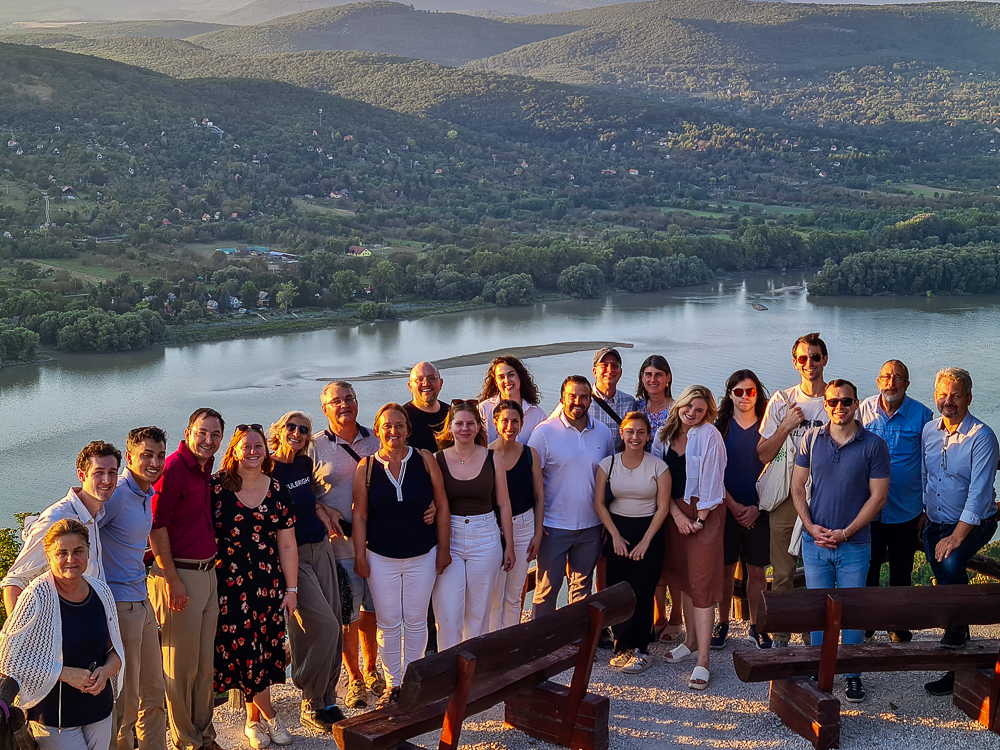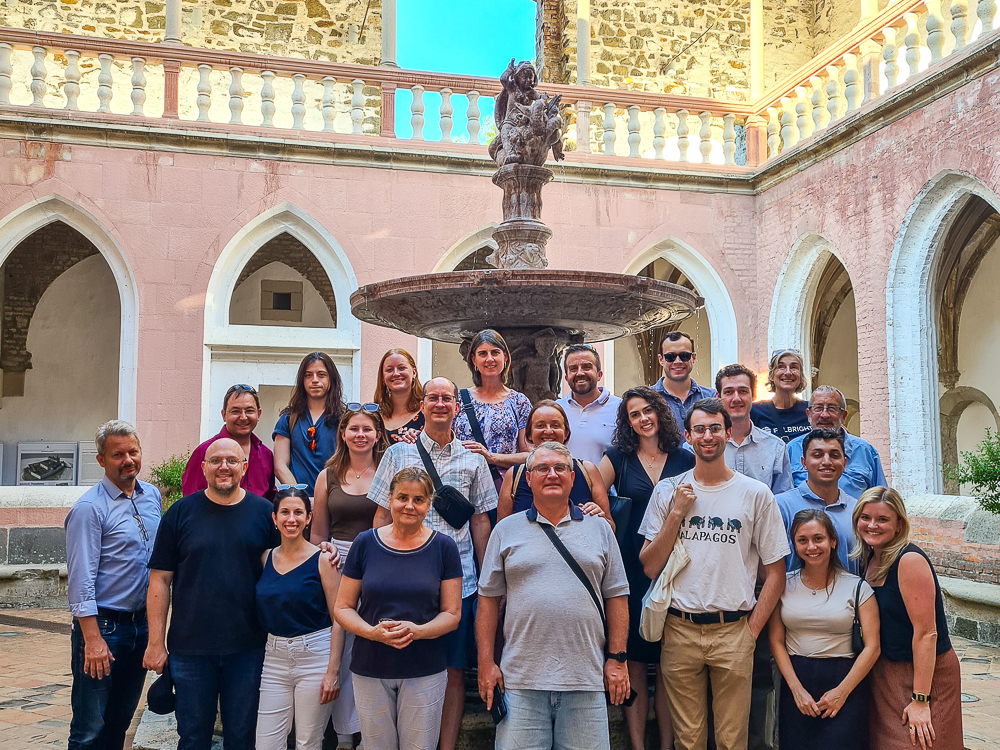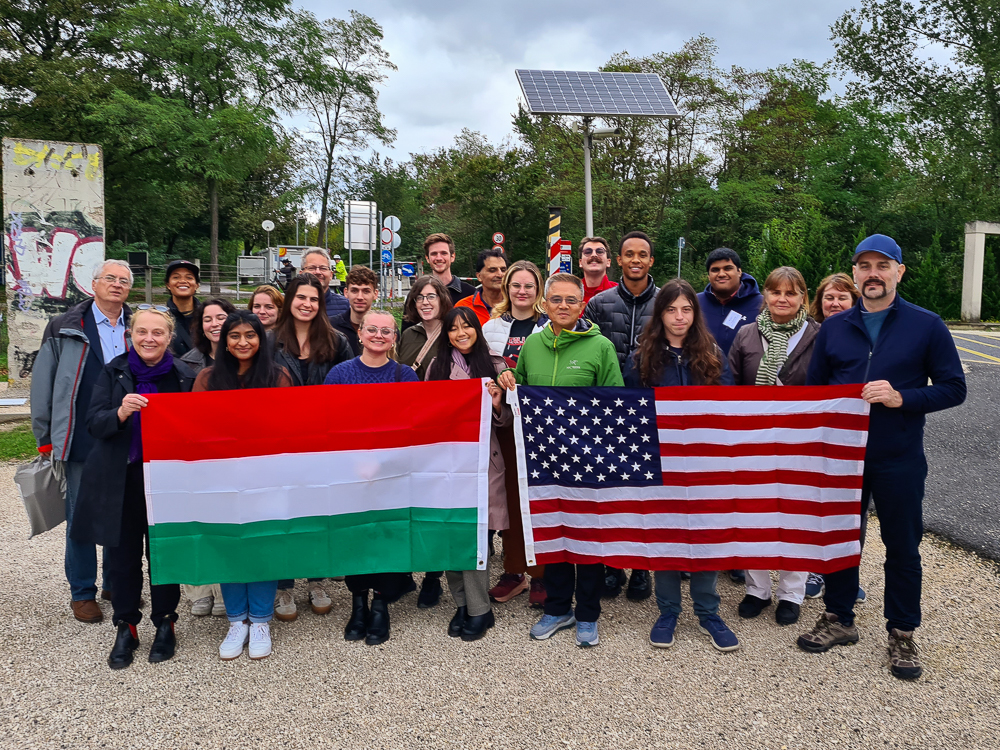Fulbright - Semmelweis University Award - Medical Sciences
Hungary
Number of recipients
In addition to being a prestigious academic exchange program, the Fulbright Program is designed to expand and strengthen relationships between the people of the United States and citizens of other nations and to promote international understanding and cooperation. To support this mission, Fulbright Scholars may be asked to give public talks, mentor students, and otherwise engage with the host community, in addition to their primary activities.
The Scholar will be expected to teach two courses, and will be welcome to conduct their own research or join the university’s research projects. They may also take part in other activities within the scholar community at Semmelweis University such as advising students, helping with faculty training and curriculum development, meeting with Fulbright alumni, conducting community outreach, engaging with the local English-speaking community, being available to local media and pursuing their own interests.
The Scholar may also have the opportunity to give guest lectures at other Hungarian universities if invited.
Semmelweis University is a leading institution of higher education in medicine and health sciences in Hungary and the Central European region. The Budapest-based institution’s main commitment is to integrate education, research, and healthcare, making it an internationally renowned knowledge center.
Semmelweis University is 271st in Times Higher Education’s 2025 World University Rankings. In the latest US News Best Global Universities list, it is ranked 31st in the field of cardiology and cardiovascular systems.
It owes its outstanding results mainly to its scientific achievements, internationally recognized quality of teaching, high ratio of international students, prominent role in tackling cross-border challenges in healthcare, and active participation in international scientific life. One third of the university’s almost 16,000 students come from 129 countries around the world.
Semmelweis University has developed partnerships with overseas institutions for decades, nurturing an extensive international professional network in education and research. It has maintained long and fruitful collaborations with US partners, including Harvard University, the Mayo Clinic, Rutgers University, UC Davis, Washington University, and the Hungarian Medical Association of America. The success of these cooperations is demonstrated by several student and teaching mobility programs, clinical research, and joint publications.
Videos:
MY SEMMELWEIS – Study at Semmelweis University and live in Hungary's vibrant capital, Budapest
Harvard Clinical Scholars Research Training Program
Why Semmelweis? - Dr. Tom Kato Karlsen
Rector Emeritus of Heidelberg University - Dr. Bernhard Eitel
Week of Science at Semmelweis University
Medical Sciences, Dentistry, Pharmaceutical Sciences, Health Sciences, Digital Health Sciences, Health Services Management, Health Policy



All applicants must meet the Program eligibility requirements (click to review the requirements).
Teaching will be in English; additional language proficiency is not required.
Scholars with at least three years of university or college level teaching experience are welcome.
For further information, please contact the head of the department of your area of expertise and/or Dr. Marcel Pop from the Directorate of International Relations at pop.marcel@semmelweis-univ.hu
Videos:
Semmelweis connecting us – Dr. Scott David Solomon
Semmelweis connecting us - Dr. Katalin Karikó
Semmelweis International Vascular Symposium 2023
$3,500 - $3,750 per month depending on scholars's current academic rank or professional equivalent.
Appr. $530 (HUF 200,000) per month local currency allowance.
The USD amount is subject to small exchange rate fluctuations. Average exchange rate: USD 1 = HUF 375
Reimbursement of actual cost of direct, most economical round-trip airfare for grantees up to $2,000.
Allowance of $100 per month for one dependent and $200 per month for two or more dependents.
Dependent travel allowance of $500 for one dependent and $1,000 for two or more dependents.
Dependents are welcome to participate in the in-country orientation program and in monthly cultural enrichment programs organized by the Fulbright Commission in Hungary.
Dependents must accompany the grantee for at least 80% of the period abroad and a minimum of one semester in order to qualify for additional dependent benefits. Dependent benefits are not provided to Flex grantees.
- Cost of living in Hungary is on average about 30% lower than in the United States.
- Depending on the size and quality of the apartment, housing in downtown Budapest ranges between $600-$1,200 per month.
- Utilities, internet connection, and building maintenance fees average about $150 per month; but could be included in the rent.
- Housing and living costs in smaller cities could be somewhat lower.
- Groceries for one person could typically cost between $200-250 per month. Eating out per meal costs approximately $15-30.
- In-country travel costs: monthly Budapest travel pass (unlimited travel on all means of public transportation): $25, a round-trip train ticket between Budapest and another major city: $20-25
- A museum admission ticket is between $10-20, concert tickets (good seats) are between $15-30, opera tickets are more expensive
- Cost of living in Hungary according to: Numbeo Website; Expatistan Website (prices in Hungarian currency, average exchange rate: USD 1 = HUF 375)
One-time settling-in allowance of $300.
Final grant amounts will be determined prior to the start of the academic year and are subject to the availability of funds. The United States Department of State and the Fulbright Commission in the host country reserve the right to alter, without notice, participating countries, number of awards and allowances.
Hungary
Hungary is a welcoming country that boasts rich cultural and educational traditions. Because the country has historically been the crossroads to many different cultures, our Fulbrighters will be able to witness these influences first hand. From Roman, Romanesque, medieval and neoclassical architecture, Turkish mosques and spas, an abundant art and music presence, and the diverse cuisine; there is sure to be something to intrigue everyone.
The Hungarian higher education system is part of the European Higher Education Area. The country has many well-known universities and research institutions with strong international connections, joint programs, and many international students. The Fulbright Program enjoys high prestige. The Fulbright Commission in Budapest offers grantees thorough assistance with finding housing and with their entry visa/residence permit application. The Commission organizes an extensive four-day orientation program for the newly arrived U.S. grantees. The orientation program provides an overview of Hungarian history, culture, and introduces grantees to current academic, political and practical issues. All through the grant period, grantees are regularly invited to participate in cultural enrichment programs. These monthly meetings, trips, cultural events and conferences offer interesting insights into Hungarian culture and different kinds of institutions, and also foster team spirit among grantees. The Fulbright Commission in Hungary pays special attention to grantees with families, welcoming spouses and children too. Dependents can choose from the numerous cultural opportunities (museums, galleries, musical events, libraries, programs for children, volunteer opportunities) all Hungarian cities offer. Medical care is extensive. Doctors are well-trained. Grantees and dependents can use the services of state-run medical institutions or private English-language clinics.
Public transportation in the capital city is extensive and inexpensive: buses, trams, metro cars, trolley buses, suburban trains run frequently. The network of intercity trains and buses offer good service to cities in the countryside.
The academic year is from September to June. Semesters are four months in length. The fall semester starts in September, the spring semester in February. English language is sufficient for teaching and research in all fields. Over 700 study programs in English and other foreign languages are offered by Hungarian higher education institutions, see Study in Hungary.
Applications are welcome in all fields. Please see specific awards for areas of interest. Dual affiliations may be possible.
English language schools (pre-K-12) are located in Budapest only. In major cities, there are dual-language high schools where specific subjects are taught in English.
For more information about working and living in Hungary, please visit the following links:
Choose Hungary: Why was Hungary your destination?
What did you achieve thanks to Fulbright?
Testimonials of former U.S. grantees to Hungary
Recent Fulbright U.S. Scholar alumni available for reference:
Delia DeBuc (research) dcabrera2@med.miami.edu
Cleopatra Charles (teaching) cleopatra.charles@rutgers.edu
Scott Frisch (teaching/research) Scott.Frisch@csuci.edu
Prospective applicants may contact the Hungarian-American Fulbright Commission for Educational Exchange for advice or for further information:
Dr. Károly Jókay, Executive Director, email: director@fulbright.hu
Annamária Sas, American Program Officer, email: sas@fulbright.hu
Website: www.fulbright.hu
Visit our Scholar Directory to view and search all Fulbright alumni. You can also learn more about Fulbright Alumni Ambassadors.
